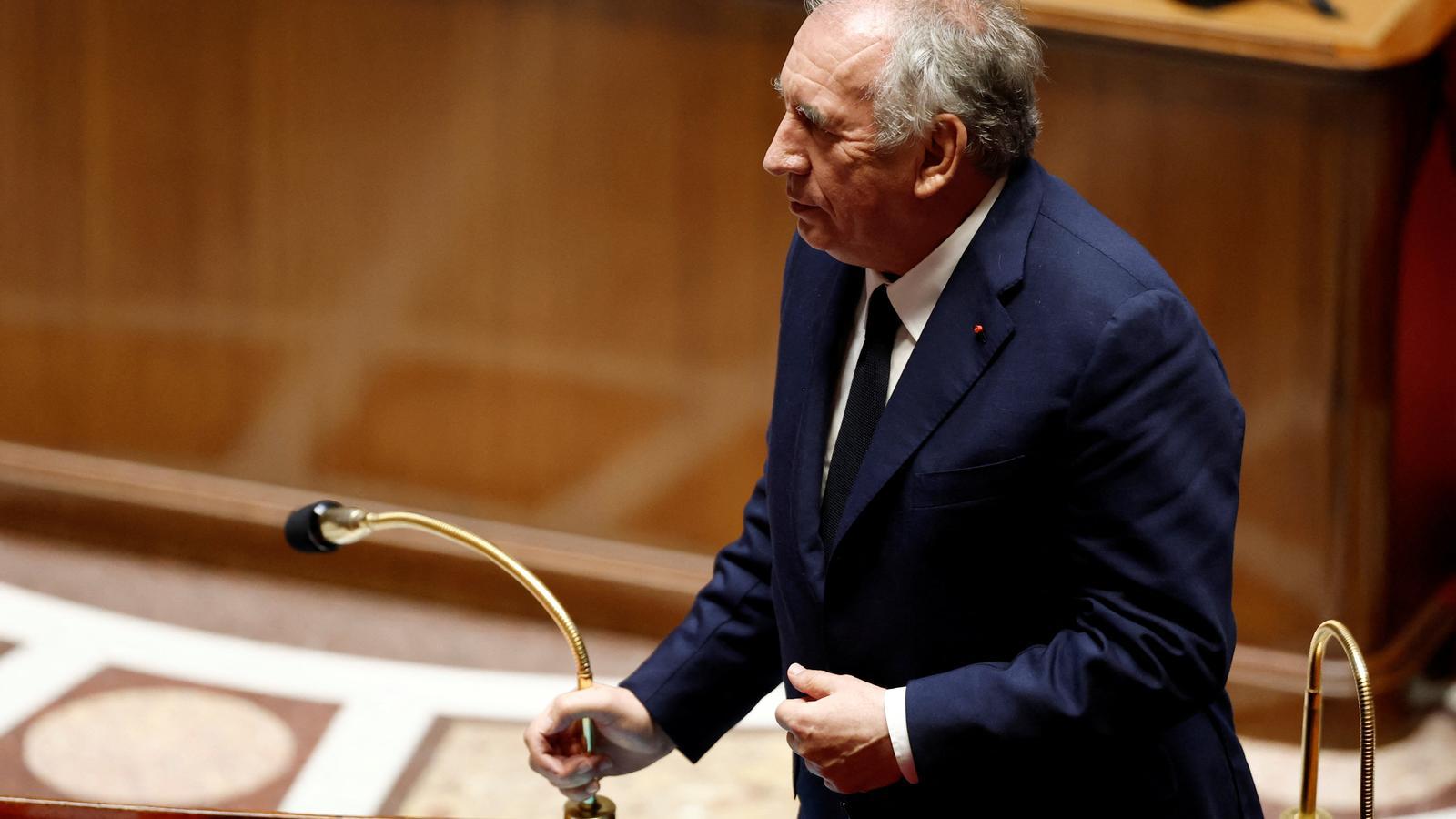Bayrou loses the vote of confidence and leaves France without a government.
The French Prime Minister will submit his resignation to the President of the Republic on Tuesday.


ParisThere was no miracle. The French National Assembly voted overwhelmingly against the vote of confidence that Prime Minister François Bayrou had voluntarily submitted, seeking to secure a commitment from the parties to approve the 2026 budget. The gamble was very risky and, as expected, backfired. Only a simple majority was needed to oust Bayrou, but the result of the vote was overwhelming: 364 deputies voted against and only 194 in favor.
The result of the vote means that the government must resign. The prime minister will go to the Élysée Palace early Tuesday morning to make his resignation effective before President Emmanuel Macron, who announced in a statement that he had appointed a new prime minister "in the coming days."
Bayrou has only held the post for nine months, and his departure highlights France's governance problems. In just over a year, the country has had three prime ministers. And there will be four when the president appoints a new head of government.
The alternative is to dissolve the Assembly and call early legislative elections, as some opposition parties, especially the far right, have demanded. "It's an obligation" given the situation, asserted Marine Le Pen, leader of the National Rally (RN). "A large country like France cannot live with a government on paper," the far-right leader insisted. If the Assembly were dissolved, Le Pen would not be able to run in the legislative elections because she has been barred from holding public office for a five-year term since March.
Jean-Luc Mélenchon's La France Insoumise (LFI) goes even further and has called for the president's resignation: "The chaos of the deadlock is Macron. He must go. If he stays after having lost elections three times, he will provoke an even more explosive situation than the current one," Mélen declared.The Parisian.
"We are in mortal danger"
In his speech to the Assembly before the vote, François Bayrou appealed to the deputies' "personal conscience" and criticized groups for putting partisan interests before the country's interests, alluding to his attempt to pass an austere budget designed to reduce the deficit and its enormous size. "We are in mortal danger. The central issue is controlling our spending and debt," Bayrou warned.
The current prime minister recalled that France has not had a balanced budget for fifty years and warned of the danger this poses to the economy. "The debt is piling up. Every year we spend more than we earn [...]. It has become an addiction," he emphasized. "It has the power to bring down the government, but not to erase the truth," he made clear to the deputies.
"Do you want the truth? Well here it is: Emmanuel Macron has never stopped weakening the country, impoverishing the poor, enriching the rich, turning his back on the future, which is now nothing more than the sum of his petty acts of cowardice and his great renunciations of sovereignty," responded the leader of the Socialists in the Assembly, Boris Vallaud. "And you have not been up to the task," added the Socialist.
The draft budget that Bayrou drew up proposed highly controversial measures, especially the elimination of two public holidays without workers receiving more pay. In his speech, he lamented that political groups do not look reality in the face and are not able to pass a budget that includes cuts.
In the debate, the left-wing parties were emphatic. "Your departure is a relief. It would almost be a satisfaction, if it weren't accompanied by the anxiety of what will come next," said Cyrielle Chatelain, parliamentary leader of the Greens. The Republicans (right), on the other hand, Bayrou's governing partners, only reproached the prime minister for a few "mistakes," but their leader in the Assembly, Laurent Wauquiez, defended voting in favor of the vote of confidence to bring "stability" to the country. Despite his speech, Wauquiez gave deputies a free vote.
An unprecedented crisis of instability
With the forced resignation of the government, France deepens the political crisis that began when Macron lost his parliamentary majority in 2022 and worsened after the 2024 legislative elections, which left a National Assembly in which, for the first time, no bloc held a clear majority. This situation has resulted in a period of instability never before seen in the Fifth Republic. The unprecedented fragmentation not only makes passing any law necessary for a broad cross-party consensus, but also makes bringing down the government relatively easy. The dynamic of censure has taken root in French politics and opens the debate on the exhaustion of the political system.
Now, Macron will most likely appoint a new prime minister as soon as possible. The real difficulty is finding a figure who generates consensus to avoid immediate censure. According to leaks to the French press, the president is now willing to appoint a Socialist prime minister—until now, he had refused to give the left a chance, despite the fact that the coalition of left-wing parties, the New Popular Front, was the bloc that won the most seats in the 2024 legislative elections—but for a Socialist to outlast the Left, he must outlast the Macronist and centrist Left.
In any case, the party is willing to take the reins of government. "By voting against confidence today, the Socialists are taking on the responsibility of affirming that they are ready, with the Left and the environmentalists, to govern," asserted the parliamentary spokesperson. Socialist Party leader Olivier Faure will be the party's candidate.
